
The Cure are an English rock band formed in 1978 in Crawley, West Sussex. Throughout numerous lineup changes since the band's formation, guitarist, lead vocalist, and songwriter Robert Smith has remained the only constant member, though bassist Simon Gallup has been present for all but about three years of the band's history. Their debut album, Three Imaginary Boys (1979), along with several early singles, placed the band at the forefront of the emerging post-punk and new wave movements that had sprung up in the United Kingdom. Beginning with their second album, Seventeen Seconds (1980), the band adopted a new, increasingly dark and tormented style, which, together with Smith's stage look, had a strong influence on the emerging genre of gothic rock as well as the subculture that eventually formed around the genre.
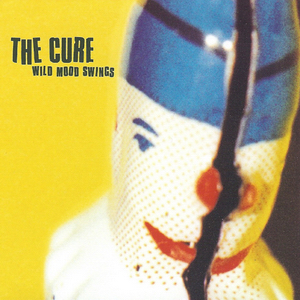
Wild Mood Swings is the tenth studio album by English rock band the Cure, released on 6 May 1996 by Fiction Records. The album charted at number nine on the UK Albums Chart, staying on chart for six weeks, and charted at number 12 in the US Billboard 200.
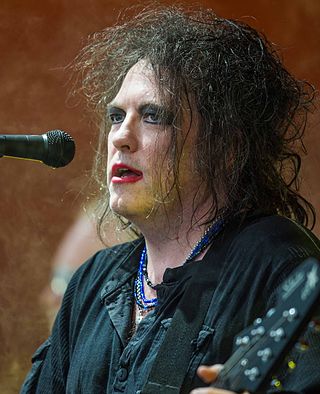
Robert James Smith is an English musician, singer, songwriter, and record producer. He is best known for his work as the co-founder, lead vocalist, guitarist, primary songwriter, and only continuous member of the rock band the Cure since 1978. His unique guitar-playing style, distinctive singing voice, and fashion sense—almost always sporting a pale complexion, smeared red lipstick, black eye-liner, unkempt wiry black hair, and all-black clothes—were highly influential on the goth subculture that rose to prominence in the 1980s.
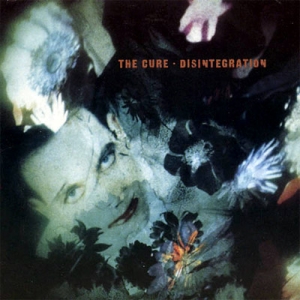
Disintegration is the eighth studio album by English rock band the Cure, released on 2 May 1989 by Fiction Records. The band recorded the album at Hookend Recording Studios in Checkendon, Oxfordshire, with co-producer David M. Allen from late 1988 to early 1989. Following the completion of the mixing, founding member Lol Tolhurst was fired from the band.
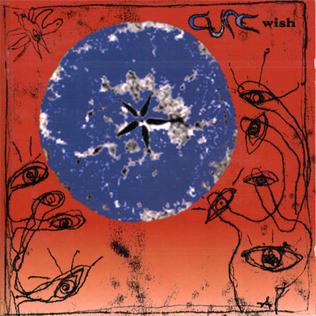
Wish is the ninth studio album by English rock band the Cure, released on 21 April 1992 by Fiction Records in the United Kingdom and Elektra Records in the United States. Wish was the most commercially successful album in the band's career, debuting at number one in the UK and number two in the US, where it sold more than 1.2 million copies.

Boys Don't Cry is the Cure's first compilation album. Released in February 1980, this album is composed of several tracks from the band's May 1979 debut album Three Imaginary Boys with material from the band's 1978–1979 era.

Kiss Me, Kiss Me, Kiss Me is the seventh studio album by English rock band the Cure, released on 26 May 1987 by Fiction Records. The album was recorded at Studio Miraval in Correns, France.
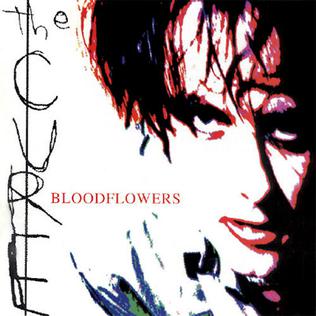
Bloodflowers is the eleventh studio album by English rock band The Cure. It was first released in Japan on 2 February 2000, before being released in the UK and Europe on 14 February 2000 and then the day after in the US by Fiction Records and Polydor Records. Initially the album was to be released in 1999, as it had been completed by May that year, the record company wanted it to be released “post millennial fever,”.
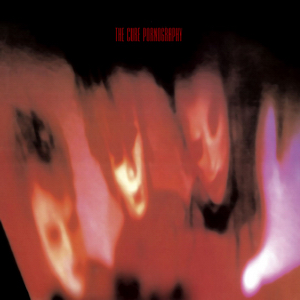
Pornography is the fourth studio album by English rock band the Cure, released on 4 May 1982 by Fiction Records. Preceded by the non-album single "Charlotte Sometimes", it was the band's first album with new producer Phil Thornalley, and was recorded at RAK Studios from January to April 1982. The sessions saw the band on the brink of collapse, with heavy drug use, band in-fighting, and frontman Robert Smith's depression fueling the album's musical and lyrical content. Pornography represents the conclusion of the Cure's early dark, gloomy musical phase, which began with their second album Seventeen Seconds (1980).

The Head on the Door is the sixth studio album by English rock band the Cure. It was released on 30 August 1985 by Fiction Records. Preceded by the single "In Between Days" which had reached No. 15 on the UK Singles Chart, The Head on the Door was described by Melody Maker as "a collection of pop songs". With its variety of styles, it allowed the group to reach a wider audience in both Europe and North America. In the United Kingdom it became their most successful album to date, entering the albums chart at No. 7 on 7 September.

"Lovesong" is a song by English rock band the Cure, released as the third single from their eighth studio album, Disintegration (1989), on 21 August 1989. The song saw considerable success in the United States, where it reached the number-two position in October 1989 and became the band's only top-10 entry on the Billboard Hot 100. In the United Kingdom, the single charted at number 18, and it peaked within the top 20 in Canada and Ireland.

Bane is an American hardcore punk band that began in 1995 as a side project between Aaron Dalbec and Damon Bellorado. Dalbec approached Matt Firestone to sing and they played under the moniker of Gateway for a few shows, before Firestone parted ways to focus on other projects. Dalbec then approached Aaron Bedard about singing for Bane. They went into the studio in December 1995 with a few friends and released a five-song demo. The next year saw the release of their first EP, and many shows throughout central Massachusetts. In early 1997, Bane released Free to Think, Free to Be EP, and in 1998 the band released the Holding This Moment 7" and CD collection, and embarked upon their first US tour. Like many other hardcore bands, Bane are known for their promotion of tolerance and unity within the scene.
soulDecision was a Canadian pop band active from 1993 to 2005. They are best known for the single, "Faded", which hit number-one in Canada in 2000, and "Ooh It's Kinda Crazy", which became a hit as well the following year in early 2001.
Sorry About Dresden was an indie rock band from Chapel Hill, North Carolina. The band formed in 1997 and was signed to Saddle Creek Records.
Indecision was an American hardcore punk band that was started in the Bay Ridge neighborhood of Brooklyn in 1993, and officially disbanded in the summer of 2000 though they still play shows occasionally for charity.
Ensign is an American hardcore punk band from New Jersey. They formed in 1995 and signed with Indecision Records in 1996. They signed to the larger label "next door", Dexter Holland's Nitro Records, in 1998 and finally came to rest at Blackout Records in 2003 after a brief sortie back to Indecision in 2000.

The Price of Progression is the third full-length album by the New Jersey, U.S. band, Ensign. It follows the 1999 release of Cast the First Stone and was recorded in November and December 2000 for an April 2001 release by Indecision Records.

Three Years Two Months Eleven Days was an album of early material, often referred to as a retrospective, by the American band Ensign. Recorded in various sessions between January 1996 and July 1998 – including a live recording – and with varying members, it was released by the band's first record label, Indecision Records, in April 2000.

The Death by Stereo/Ensign split 7-inch EP was released by Indecision Records in December 2000. It was an interesting release because both bands had left the label. Ensign in 1998 to go to Nitro Records, and Death by Stereo to go to Epitaph Records. At the time, Death by Stereo were recording material for their new studio release, Day of the Death, and Ensign were in New York City producing an EP for Nitro Records, For What It's Worth. They both agreed to record extra tracks for release by the label which had arguably launched their careers.

For What It's Worth is an EP by New Jersey hardcore punk band, Ensign. It was released in October, 2000 by Nitro Records and was the band's second release for the label following their first full-length album after leaving Indecision Records, Cast the First Stone. It was recorded in June, 2000 in New York City and at the same time the band produced two further tracks which appeared on the Death By Stereo/Ensign Split 7" (EP) on Indecision Records in December, 2000. The track, "Cast In Shadows" was later re-recorded and appeared on their next album for Nitro Records, The Price of Progression. Another track, "Left Hand Syndrome", was destined for the same release, according to the inlay details, but eventually was omitted.
















